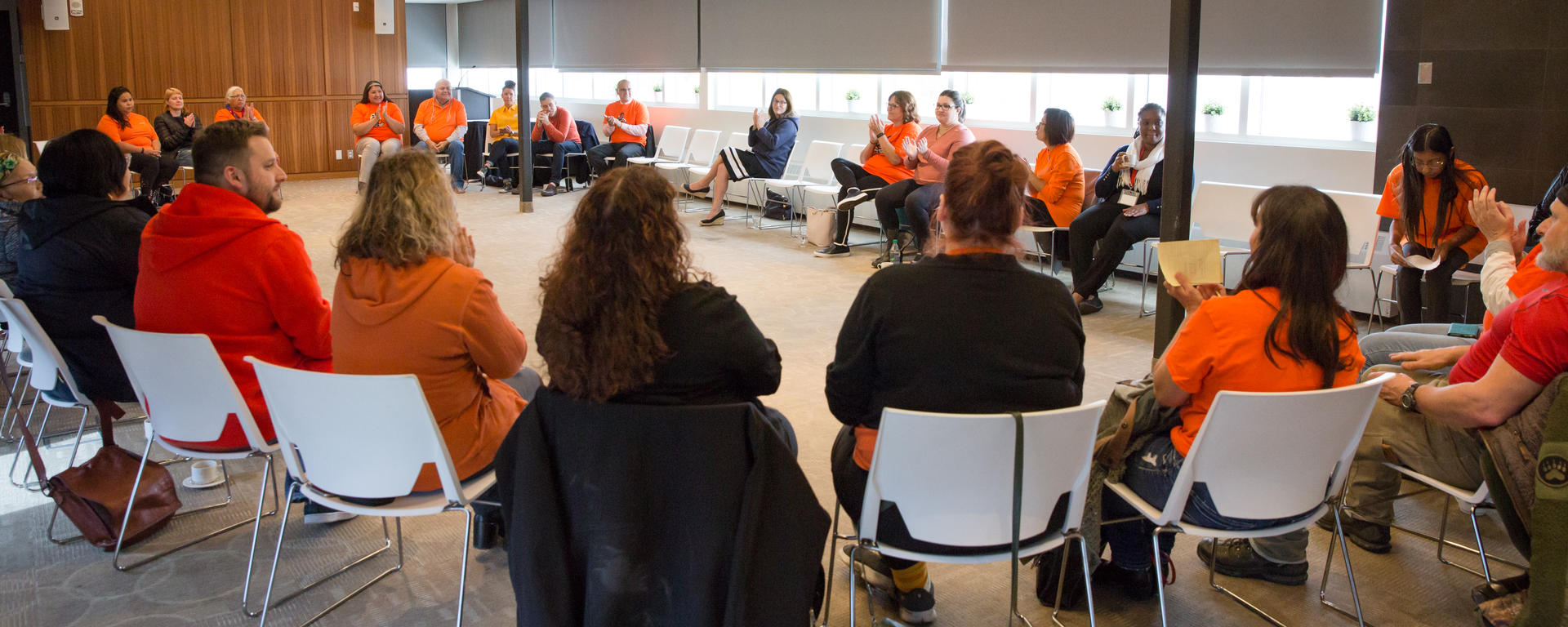A message from Acting Vice-Provost (Indigenous Engagement) Dr. Shawna Cunningham
The University of Calgary launched its Indigenous strategy ii’ taa’poh’to’p, in November of 2017. Our strategy ‒ envisioned and enacted through ways of knowing, doing, connecting, and being ‒ creates a road map for reconciliation through education. The first recommended step in our journey forward is to engage in learning opportunities that shed light on the oppressive, often violent, aspects of colonization. The residential school system, enforced by law for approximately 150 years, was a key assimilation tactic of colonization rooted in racism and driven by a sense of power, privilege and dominion. Violent acts of colonization ‒ including the residential school system ‒ resulted in cultural genocide, discrimination, marginalization, and socio-cultural inequities for Indigenous peoples in Canadian society.
It is important for us, as an academic institution, to strive towards a more equitable and inclusive future through education ‒ a transformative education system that recognizes, respects, and creates space for Indigenous experiences, knowledge, languages, and cultures. Coming together to, listen, learn, and reflect on the legacy of residential schools is an opportunity to open our minds, our hearts, and our communities to a better future, built together in a good way, a future where every child matters.


